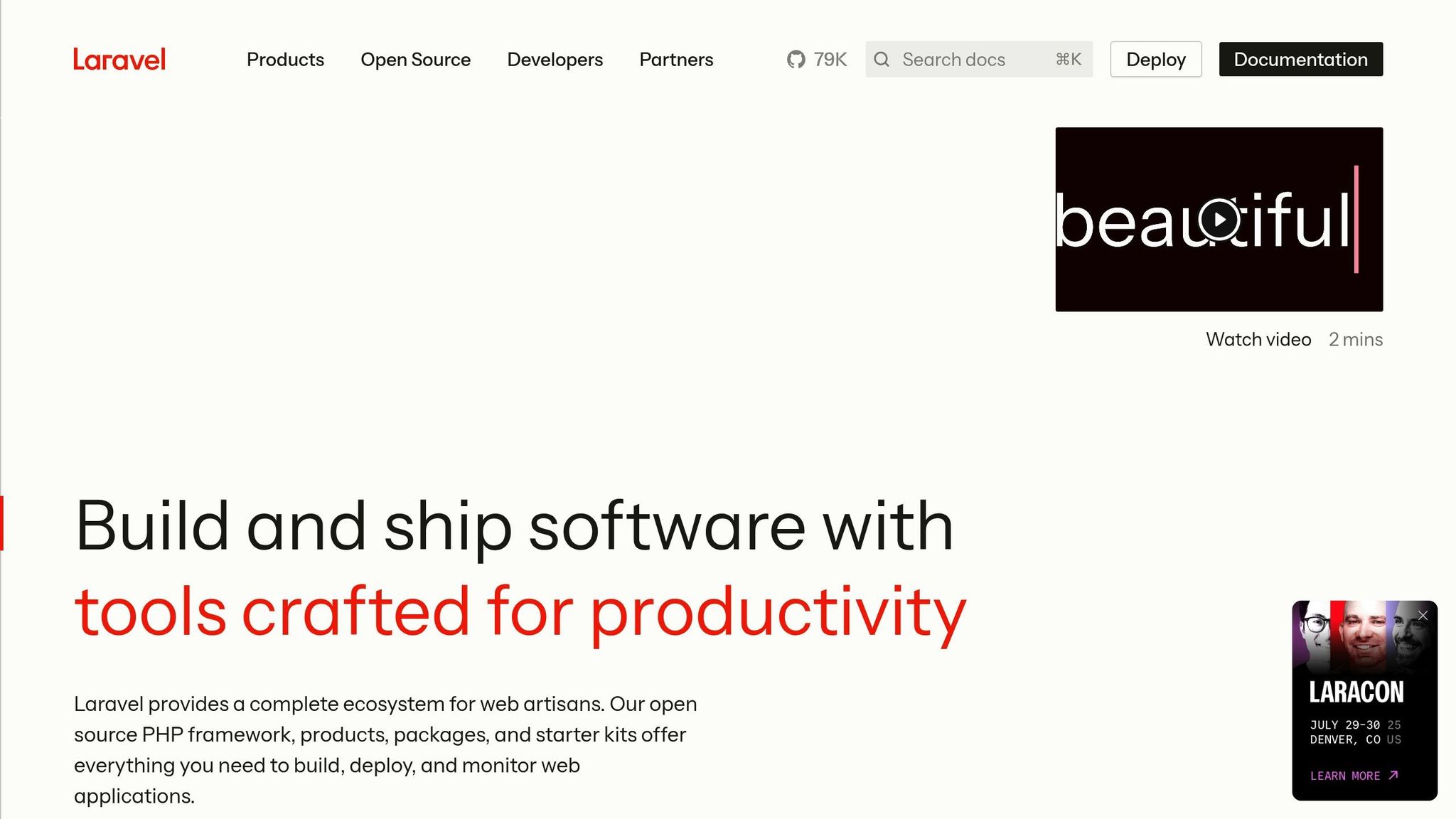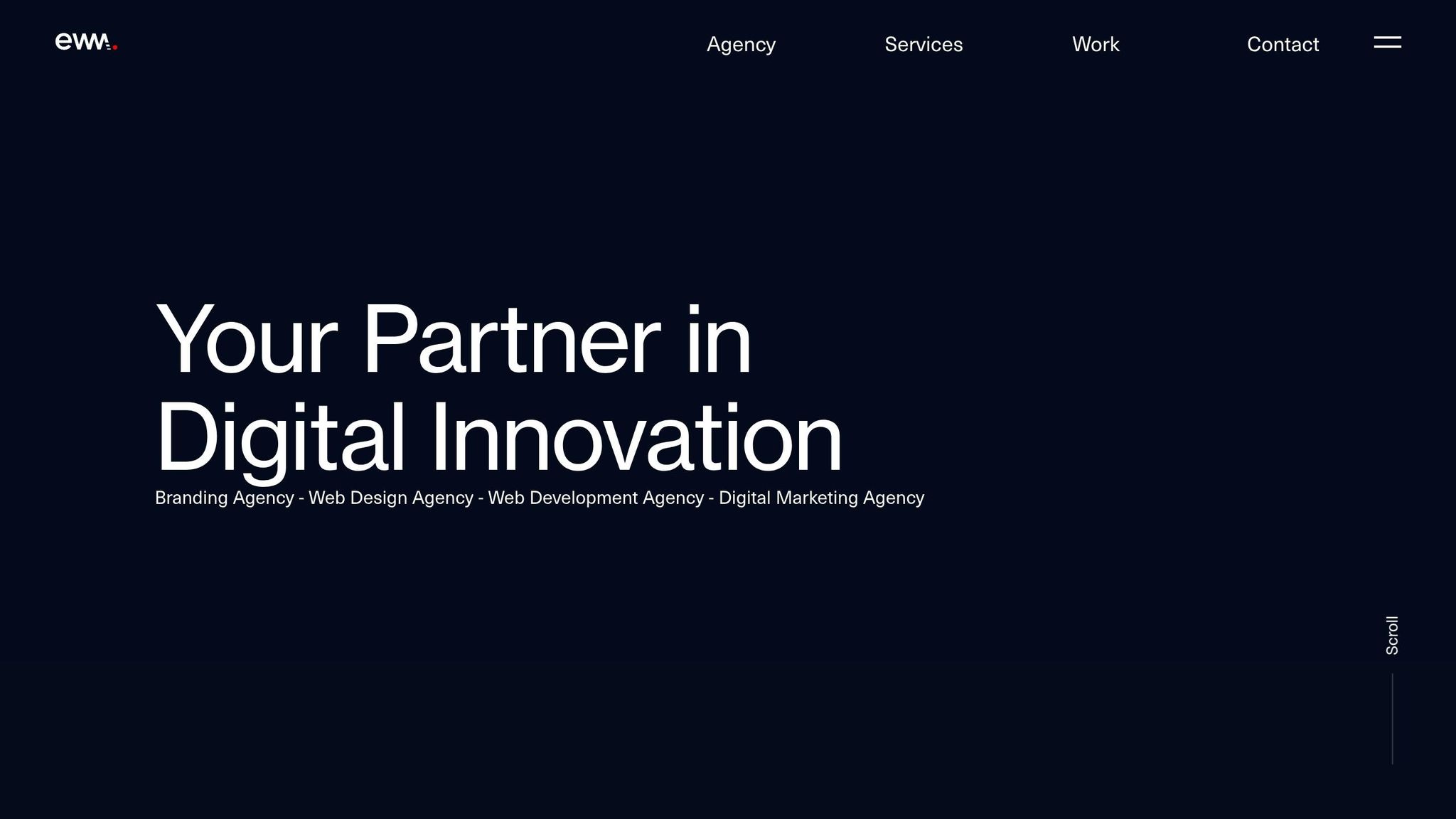
Development of custom web applications for Swiss sectors
Custom web application development for Swiss sectors
Swiss companies, facing strict regulatory requirements and unique linguistic diversity, cannot settle for generic solutions. This is why custom web applications are essential:
- Cost reduction: Custom applications reduce operating costs by up to 47% and increase revenue 2.5 times faster.
- Enhanced security: In the face of rising cyberattacks (37% of companies affected by ransomware), unique code limits vulnerabilities.
- Legal compliance: The new Federal Data Protection Act (nLPD) requires integrations from the design stage to avoid fines of up to CHF 250,000.-.
- Local adaptation: Multilingual management (French, German, Italian, Romansh) and integration of local payments like Twint or PostFinance.
- Success stories: A Swiss logistics company improved efficiency by 30% with a custom solution, while an e-commerce saw sales increase by 25% in six months.
Average cost for Swiss companies:
- Basic applications: CHF 5,000 to CHF 15,000
- Intermediate projects: CHF 20,000 to CHF 50,000
- Complex solutions: Over CHF 100,000
Custom applications are not a luxury but a necessity to remain competitive in a demanding Swiss environment.
Requirements of Swiss industries and common issues
In Switzerland, each sector faces unique challenges, often related to strict regulations and high expectations. These obstacles require tailored web solutions capable of precisely meeting the needs of each industry.
Finance: security and regulatory compliance
The Swiss financial sector, representing 25% of the global market for managed assets outside the country, operates in a demanding regulatory framework (FINMASA, BankA, FinMIA, FinSA, and other international standards).
An illustrative example is the consolidation of the banking sector: the number of establishments decreased from 292 in 2014 to 239 in 2023. This reduction is partly due to the high costs of compliance and the investment required in advanced technologies.
Banks must now strengthen their controls, especially to prevent money laundering. This involves real-time analysis of massive data volumes, often as part of the Automatic Exchange of Information (AEOI). The February 2025 Morgan Stanley case is a striking example: the bank was fined CHF 1 million after a money laundering case involving a client advisor and acts of corruption in Greece.
"The platform is easy to use and it provides comprehensive coverage of regulatory topics relevant to our bank. It's a pleasure working with Compliance.ai; they provide helpful support and continually enhance the platform to make it easier to use and to increase coverage." - Charlie Christ, Bank of Marin
These examples highlight the importance of robust web solutions to meet complex regulatory requirements.
NGOs and international organizations: multilingual and flexible platforms
NGOs and international organizations based in Switzerland, notably in Geneva, a key international hub, must manage significant linguistic diversity. With four national languages (German, French, Italian, Romansh) and English used by 4.4% of the population in 2016, effective multilingual platforms are essential.
These organizations require tools capable of meeting the needs of complex multilingual audiences: automatic translation, interfaces tailored to each language, and. The example of Kosovo is revealing: providing information in Serbian, Albanian, and English has enhanced accessibility and trust among different communities.
"Switzerland is a united nation, forged from linguistic and cultural diversity, with freedom as its unifying value." - Federal Councillor Ignazio Cassis
play a key role here, allowing these organizations to adapt to growing needs while maintaining effective communication.
Real estate and e-commerce: intuitive and tailored interfaces
In the Swiss , online portals must manage complex data while remaining user-friendly. These platforms often include features such as interactive maps, or even financing calculators tailored to the local market.
A recent project demonstrated the importance of these tools, combining interactive mapping and translation services to meet user expectations.
For e-commerce, challenges include integrating local payment solutions, such as PostFinance and Twint, as well as considering the linguistic preferences of Swiss consumers. These features simplify the purchasing process while offering a.
"Communication was seamless, deadlines were met, and they were always available to address any questions or feedback. Their attention to detail and commitment to quality truly set them apart. I'm thrilled with the final result and would highly recommend Valmax to anyone looking for a reliable and talented team." - Client Review, VALMAX
Well-designed web solutions ensure efficient management of these challenges, while offering user-friendly interfaces that meet the specific needs of each sector.
Technologies and frameworks for Swiss web development
The choice of the right technologies is essential to ensure the success of a custom web application. In Switzerland, where security, performance, and regulatory compliance standards are particularly demanding, certain frameworks stand out for their ability to effectively meet these needs.
Main frameworks: Laravel, Symfony, and Next.js

Symfony is a preferred choice for complex enterprise projects in Switzerland. This PHP framework benefits from a large international community, with over 600,000 developers in 120 countries and 3,000 active contributors. With its modular architecture and MVC model, Symfony allows the creation and maintenance of custom applications that adapt to local requirements. Its ability to evolve with regulatory changes makes it a solid option for Swiss companies.
Laravel, on the other hand, is designed to simplify development while ensuring high security standards. Very popular on GitHub, it is the most starred PHP framework. It offers built-in features that significantly facilitate the management of authentication and authorization, as highlighted by this quote:
"Laravel makes implementing authentication very simple. Almost everything is configured out-of-the-box. Laravel also provides a simple way to organize authorization logic and control access to resources."
This simplicity is particularly appreciated in a Swiss context, where data security is a top priority. Laravel has proven its effectiveness internationally with projects like STARTUPS.CO, a platform connecting 825,000 startups and 13 million users, or GLOBALDIETARYDATABASE.ORG, an academic project compiling nutritional data from hundreds of institutions.
Next.js, on the other hand, is ideal for meeting modern performance and SEO needs. This React-based framework offers advanced features such as server-side rendering and static site generation, improving loading speed and SEO. These characteristics are particularly useful for Swiss companies looking to optimize their online visibility.
Integration of localization features
For Swiss companies, localization is not just about translation. It involves adapting date formats, currencies (CHF), and other local specifics. With PHP representing 79% of websites, frameworks like Symfony and Laravel integrate powerful tools to manage these multilingual complexities.
Studies show that 76% of online buyers prefer information in their language, and 40% refuse to buy from a site in a foreign language. Best practices include:
- Using native language names in menus (e.g., "Français" instead of "French").
- Avoiding flag icons, which represent countries, not languages.
- Allowing currency choice regardless of language.
These subtle details play a key role in user experience and conversion.
Scalability and security priorities
Swiss companies need solutions that can adapt to strict regulations while remaining performant. A striking example is that of Swiss Re, which uses the MetaDefender platform from OPSWAT to scan and validate incoming files. This solution ensures regulatory compliance while protecting sensitive data:
"Swiss Re is committed to the open-source community and raising the security profile of the entire sector. We are embracing the future, and OPSWAT's commitment to broad cloud-native support for their products is very complementary to our security vision. The MetaDefender Platform provides Swiss Re with a comprehensive, easy-to-deploy and maintain solution that meets regulatory compliance requirements and eliminates the risk of malware entering the organization. The majority of documents we handle contain client personal data. These must all be scanned before reaching the internal network to protect our web applications from malicious file uploads. OPSWAT provides a high quality, easy-to-use, effective solution to secure this traffic."
The microservices architecture is also on the rise, used by 73% of organizations, with an additional 23% planning to adopt it. This approach allows each service to evolve independently, an asset for Swiss companies operating in sectors with varying needs.
The cloud computing market, on the other hand, continues to grow rapidly and is expected to reach $912.77 billion by 2025, with an annual increase of 21.2% projected until 2034. AWS dominates this market with a 30% share, followed by Azure (21%) and Google Cloud (12%). These trends directly influence the technological choices of Swiss companies looking for reliable and high-performance solutions.
Finally, monitoring key metrics such as CPU usage, network and disk I/O, and memory is essential to maintain optimal performance. This proactive approach ensures that Swiss applications remain performant while meeting growing needs.
Advantages of custom web applications for Swiss companies
Custom web applications offer Swiss companies a real competitive edge. They go beyond standard solutions by improving operational performance, enhancing user experience, and ensuring compliance with local regulations, essential for thriving in Switzerland.
Operational performance optimization
Custom applications automate internal processes and reduce inefficiencies. By integrating technologies like automation and artificial intelligence, these solutions can increase productivity by up to 45% and reduce operating costs by 47%.
An illustrative example: in February 2025, ePathUSA transformed the operations of the Nevada Equal Rights Commission (NERC) with a custom software. This initiative saved valuable time and resources while adhering to strict security standards.
To maximize efficiency, it is essential to deeply analyze the specific needs of the company to develop software aligned with its goals. Adopting cloud-based workflows and automation to replace manual tasks is a widely recommended approach.
Tailored and engaging user experience
In a multilingual country like Switzerland, offering a personalized user experience is a major advantage. Did you know that 65% of customers prefer to buy in their native language and that 72.1% of consumers spend more time on sites adapted to their culture?
Custom applications allow content adaptation to local markets' specificities and offer intuitive navigation. Take the example of Spotify: in early 2021, the platform expanded to 80 new markets and added 36 languages to its interface. By analyzing listening habits through AI, Spotify offers personalized playlists, enhancing user engagement.
Samuel Arteman, a French content expert, highlights the importance of this personalization:
"Localizing your interface means adapting it to how French speakers interact – and trust me, it's not a one-size-fits-all approach."
He also points out a commonly overlooked technical point:
"French takes up more space than English – so if your layout isn't flexible, you might end up with a messy, unappealing interface."
Compliance with Swiss laws and regulations
Custom applications also help meet Switzerland's strict legal requirements, avoiding unnecessary risks.
Since the revised Federal Data Protection Act (nLPD) came into force on September 1, 2023, companies must comply with a regulatory framework aligned with the GDPR. Penalties for non-compliance can reach CHF 250,000 (approximately EUR 263,000).
To avoid these penalties, companies can integrate legal requirements from the design stage of their applications. Django Stars, for example, has guided its clients through this transition by offering in-depth consultations, reviewing privacy policies, and organizing workshops to clarify new obligations.
To ensure compliance, it is recommended to:
- Conduct a data inventory.
- Update privacy policies.
- Implement robust data consent systems.
- Conduct data protection impact assessments.
These steps not only ensure legal compliance but also strengthen customer and partner trust.
EWM SA: Custom web solutions for Swiss companies

Since its establishment in 2011 in Geneva, EWM SA has become a key partner in digital platform design. With over 500 projects completed for renowned Swiss companies, the agency demonstrates solid and diversified expertise.
EWM SA's philosophy is based on a deep understanding of its clients' needs and target audiences. As Ramzi Chamat, founder and CEO of EWM.swiss, emphasizes:
"At EWM, we support companies in increasing their footprint, awareness and visibility through the digital realm. We also assist our clients with increasing their market share and achieving their business objectives."
This vision is accompanied by a personalized approach, tailored to the specificities of each industry.
Diversified skills in key sectors
EWM SA collaborates with a diverse clientele, ranging from major international brands to local SMEs, not forgetting NGOs. This diversity results in concrete projects that demonstrate the agency's ability to meet the specific expectations of each sector.
- Luxury and hospitality: EWM designed the HUUS Gstaad website, awarded by Awwwards for its exceptional design.
- Real estate: The agency completely revamped the Midas Properties website,